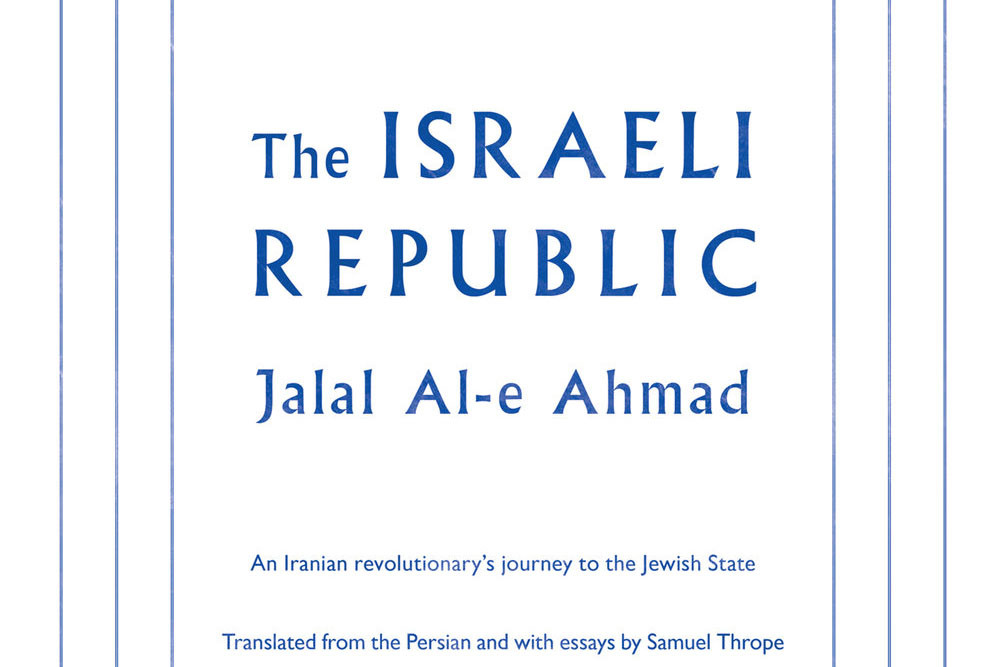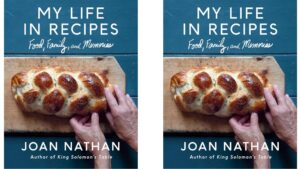“The Israeli Republic: An Iranian Revolutionary’s Journey to the Jewish State”
By Jalal Al-e Ahmad; translated by Samuel Thrope
Restless Books, 186 pages, $14.99
It is a truism that travel broadens the mind, offering new ways of seeing the world and new perspectives on one’s own beliefs. Travel literature does this with a twist, portraying an author’s awakening to new ideas and thus offering the reader a fresh view of the author.
“The Israeli Republic” offers an intriguing example of this phenomenon. Just translated into English with copious and valuable supplementary material, the book is an account of the journey that Jalal Al-e Ahmad, an Iranian intellectual, took to Israel in February 1963. Its early chapters originally appeared as Iranian newspaper articles, and the expanded version that appears here was published by Al-e Ahmad’s brother in 1989.
Al-e Ahmad is best known as the author of “Gharbzadegi,” often translated as “Westoxification” or “Occidentosis.” In that work, he excoriated the influence of European and American culture on his fellow Iranians. Shia Islam, he argued, was the only part of Iranian society untouched by this maligning influence. His ideas were so influential that Al-e Ahmad is considered a father of the Iranian Revolution, even though it took place 10 years after his death.
Given his profile, and the tumultuous times in which he wrote, it seems unlikely that Al-e Ahmad would have anything complimentary to say about the State of Israel. But he finds much to admire during his visit. In fact, he argues that Israel has solved the problem of gharbzadegi by embracing Western industry and developing a strong native culture. He even declares Israel a model velayat, or guardian state, a key Shia concept that he embraced.
By the last chapter of the book, Al-e Ahmad has reconsidered, as its title, “The Beginning of Disgust,” foreshadows. Outraged by the Six Day War and its aftermath, he rails against Israel and world Jewry in general. Even here, though, as translator Samuel Thrope notes in his introduction, “His vitriol remain[s] ambiguous and unresolved.” Al-e Ahmad ends this bitter chapter by excoriating the enemies of Israel who would annihilate its citizens, and calls for a unified Jewish-Arab Palestine.
Along with his translation, Thrope — born in the United States, now living in Israel — contributes an in-depth introduction that sheds light on Al-e Ahmad’s life and times. The book also includes an introductory essay from scholar Bernard Avishai and a selection of letters between Al-e Ahmad and his wife, Simin Daneshvar, who accompanied him on his 1963 trip.
“The Israeli Republic” is a peculiar and surprising work. It will make fascinating reading for anyone seeking a view of the Middle East beyond headlines and talking points.
“The Israeli Republic” is available at The Ivy Bookshop at 6080 Falls Road. The Ivy also hosts several literary and cultural events per month. May’s events include Jean Hanff Korelitz discussing her novel “The Devil and Webster,” about a college president caught up in a strange campus protest, on May 26 at 7 p.m. A full list of events is available at theivybookshop.com.
Rebecca Oppenheimer is The Ivy Bookshop’s content manager and lead book buyer. She lives in Roland Park.





